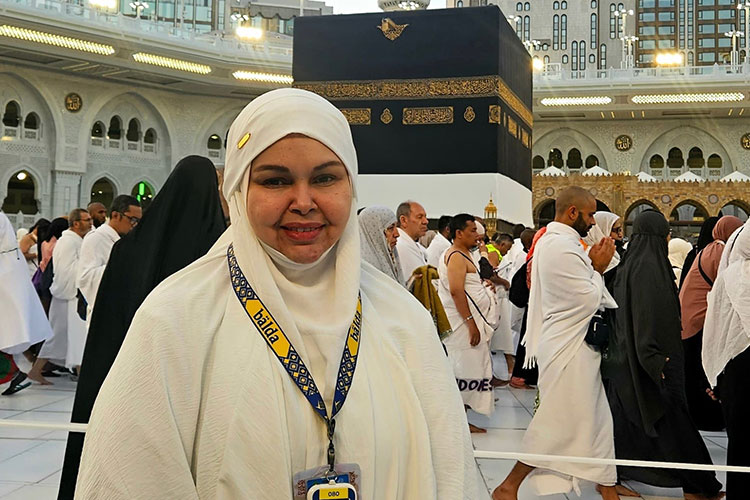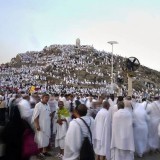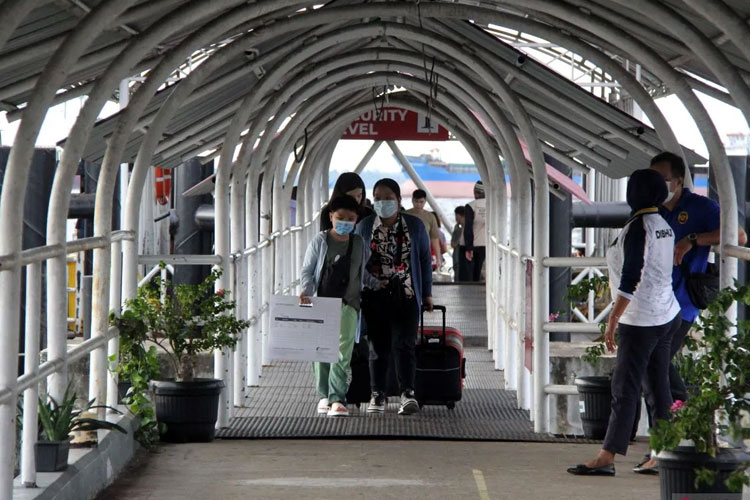TIMES AUSTRALIA, JAKARTA – Every year, millions of Muslims from around the world gather in Saudi Arabia to fulfill one of the five pillars of Islam, the Hajj. This spiritual journey requires not only mental readiness but also physical endurance. With long walks, extreme heat, and crowded conditions, the pilgrimage can be physically demanding, especially during the peak days in Arafah, Muzdalifah, and Mina (Armuzna).
As Hajj 2025 approaches, it is essential for pilgrims to take proactive steps in maintaining their health. Proper preparation can prevent illness, reduce exhaustion, and ensure a more focused and meaningful worship experience. Many common health problems during Hajj can actually be avoided with simple, practical habits.
These include getting enough rest, staying hydrated, eating clean and nutritious food, and being mindful of personal hygiene. By caring for their physical condition, pilgrims can fully dedicate themselves to the sacred rituals of Hajj with strength and clarity. Here are several tips to keep yoursel ffit and fresh during your pilgrimage.
1. Get Adequate Rest Before Armuzna
Before setting out for Arafah, make sure your body is well-rested. Physical fatigue can significantly lower your stamina during the intense days of Armuzna. Quality sleep helps restore energy, allowing pilgrims to worship with focus and sincerity.
Avoid staying up late or engaging in unnecessary physical activities in the days before Armuzna. Proper rest strengthens the immune system and helps reduce the risk of exhaustion.
2. Prevent Dehydration by Drinking Water Regularly
The extreme heat in Armuzna makes dehydration a real threat, which can impact your health and focus. Even if you're not thirsty, make a habit of drinking water throughout the day.
Avoid caffeinated drinks like coffee and tea, as they can increase urination and worsen dehydration. Coconut water or electrolyte drinks containing essential minerals can also help replace lost fluids.
3. Eat Nutritious Food and Maintain Food Hygiene
Nutritious meals support your physical stamina during the pilgrimage. Choose foods that are easy to digest and rich in fiber and protein, such as vegetables, fruits, rice, or whole-wheat bread.
Avoid overly spicy or greasy foods that may cause indigestion or bloating. Be cautious about food hygiene, avoid food that looks uncovered or has been sitting out too long, as it may lead to food poisoning or infections.
4. Maintain Personal Hygiene to Prevent Infections
Maintaining good hygiene is key to preventing infections caused by viruses, bacteria, or fungi. Wash your hands regularly with soap, especially before eating or after using the restroom.
If water is unavailable, use an alcohol-based hand sanitizer. Wearing a mask in crowded areas helps prevent respiratory infections, especially important during pandemics or in large gatherings. Keep your utensils, clothing, and bedding clean.
5. Protect Yourself from Heat and Wear Comfortable Footwear
The intense heat during Hajj can lead to skin problems and fatigue if you're not properly protected. Use a hat, sunglasses, and an umbrella to shield yourself from the sun.
A mask is also useful to guard against dust and pollution. Choose non-slip, comfortable footwear like walking sandals or shoes to avoid blisters and injuries during long walks. Sunscreen with an SPF of at least 50 is also recommended to protect your skin from harmful UV rays.
6. Bring Personal Medication and Other Health Essentials
Every pilgrim has different health needs. Bring any personal medications you may require, especially if you have conditions like hypertension, diabetes, or heart disease.
Also carry basic medications like pain relievers (paracetamol), antacids, and oral rehydration salts. Keep medicines in a practical, easy-to-reach container for quick access.
7. Worship Within Your Limits—Prioritize Safety
Always prioritize your physical safety over pushing yourself to the limit. Islam provides rukhshah (concessions) for those experiencing physical difficulty, such as the elderly, sick, or people with disabilities.
If you feel unwell or exhausted, don't hesitate to rest or seek help from Hajj officials. Worship done with sincere intention and a sound body is more valuable than risking your health.
A Health Message from Hajj Medical Staff:
"Prepare your body and mind for a smooth Hajj experience. Always take care of your health and follow guidance from medical staff. May Allah grant all pilgrims strength and well-being, and may your Hajj be accepted and mabrur."
By maintaining good health and following the tips above, pilgrims can complete their pilgrimage fully and—most importantly—with a strong and healthy body. (*)
—
Written by Dr. Syifa Mustika, SpPD-KGEH, specialist at RSSA Malang and board member of LK PBNU.
Artikel ini sebelumnya sudah tayang di TIMES Indonesia dengan judul: Hajj 2025: Preparing the Body and Mind for a Safe Pilgrimage
| Writer | : Khodijah Siti |
| Editor | : Khodijah Siti |

























